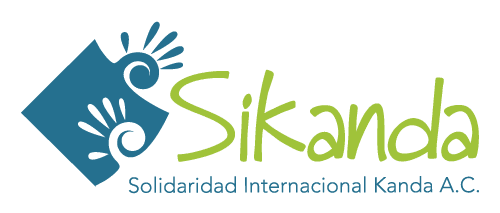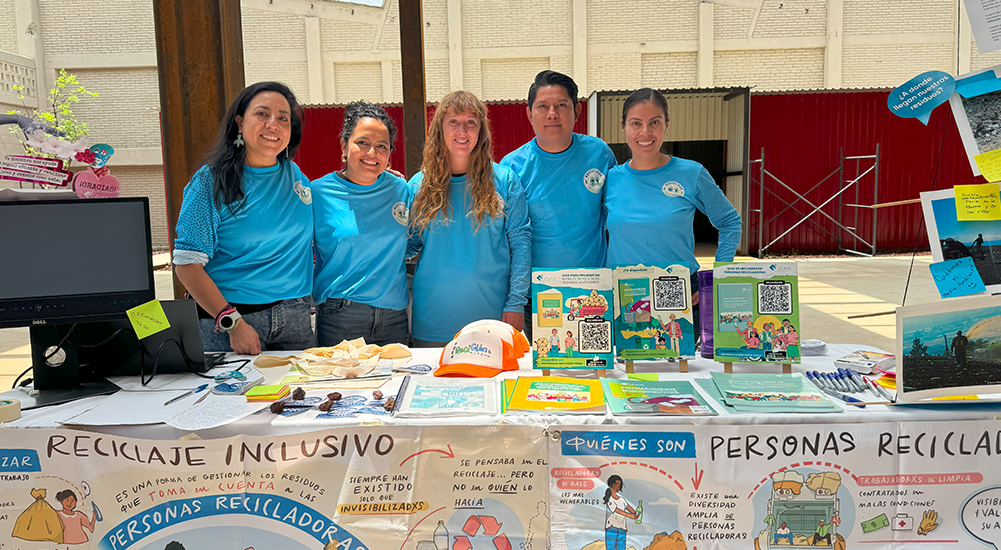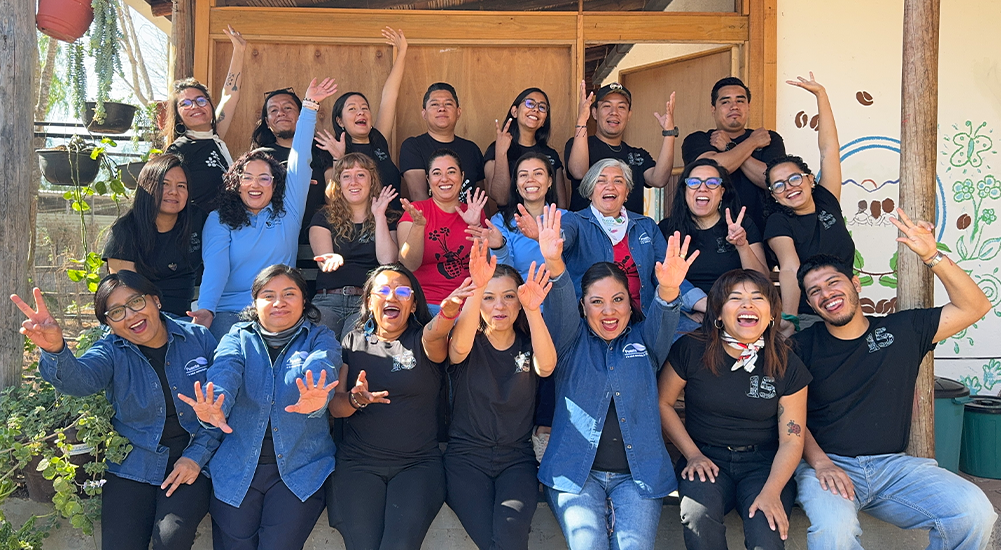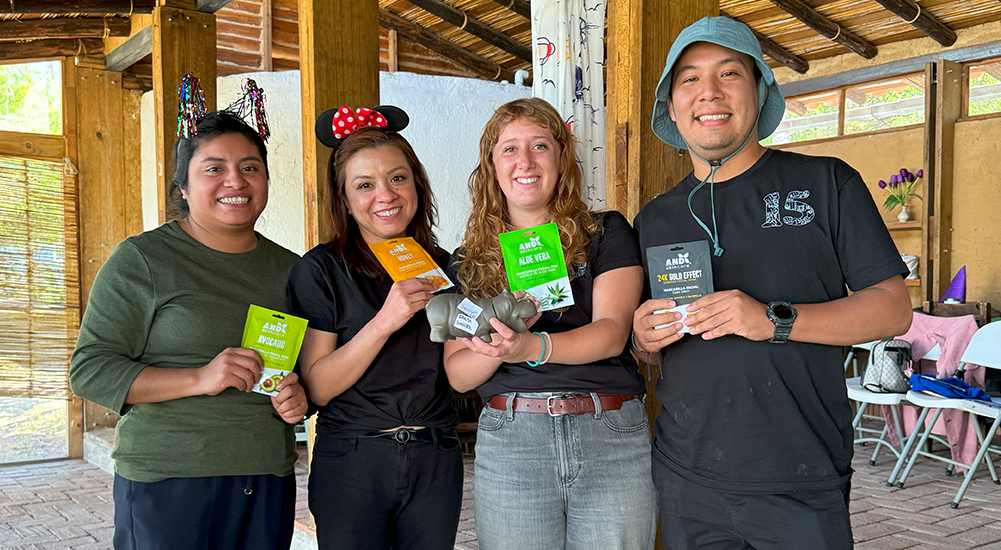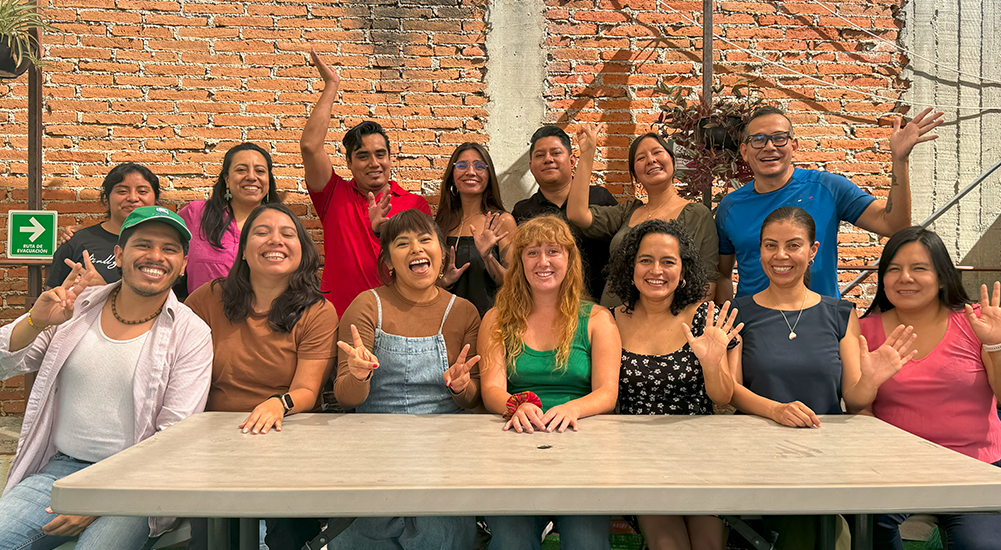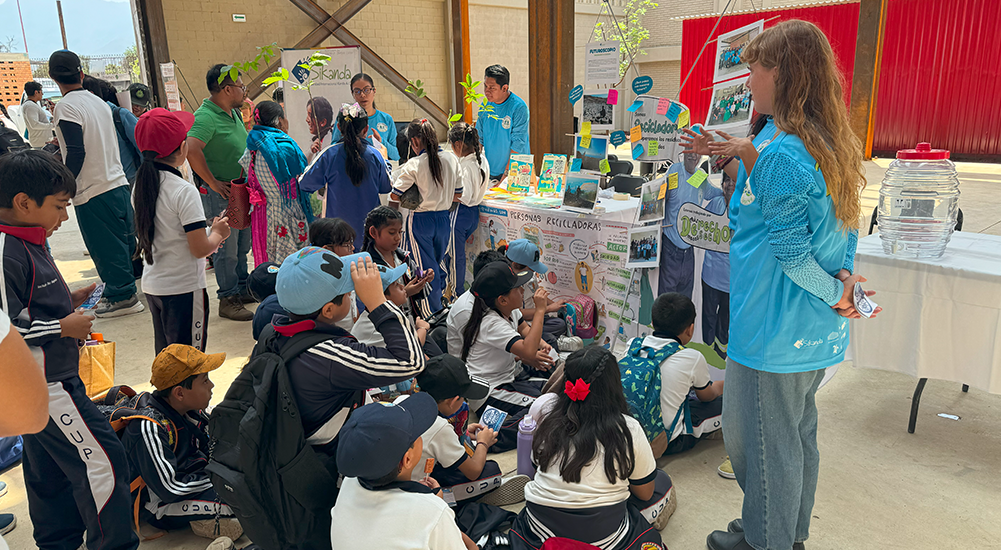Hi my name is Jeanne. I am 20 years old and I am French.
I was fortunate enough to complete a five-month internship at SiKanda as part of my political science studies. Thanks to my university, I also had the opportunity to do it abroad.

I wanted to learn about the work of civil society organizations and NGOs, because I want to pursue a career in this field. When I discovered SiKanda, I was immediately interested in the diversity of its projects and the values it promotes.
SiKanda supports marginalized and vulnerable communities through projects addressing labor rights, gender equality, intergenerational solidarity, women’s economic empowerment, and more. I particularly appreciate their participatory approach, which allows for real collaboration with communities in the design and implementation of projects.
The team welcomed me with great kindness. From the very first days, despite my difficulty expressing myself in Spanish, I felt comfortable and integrated. This environment allowed me to gain confidence, improve my language skills, and learn from the work of the team members.
I worked mainly in the offices, which allowed me to discover all the essential aspects of project management: planning, financing challenges, especially in relation to the international political context, organizing activities, and collaborative work.
During my internship, I became aware of the challenges faced by NGOs such as SiKanda in ensuring the sustainability of their actions. In recent years, there has been a growing trend toward reducing funding for international cooperation and development aid, at a time when the international context is marked by multiple crises: economic, environmental, geopolitical, social, etc.
The beginning of my internship coincided with Donald Trump’s inauguration in the United States and the suspension of USAID funding. This sudden interruption in US aid directly affected many NGOs, including SiKanda, which was forced to cancel the project Una Cosecha Justa (A Fair Harvest), originally funded by USAID.
These types of external decisions force organizations to suspend programs or reduce their staff, which weakens support for local communities and has a direct impact on them.
This highlights the importance of maintaining, but also promoting and demanding, solid mechanisms for international cooperation and sustainable financing that allow for the development of initiatives that are truly adapted to the needs of the most vulnerable communities.
I participated in various tasks, such as organizing files, reviewing internal documents, compiling and systematizing data, and providing logistical support for workshops and other activities. This allowed me to understand that, although the work of associations is often associated with the field, a large part of the work consists of planning and managing projects, which are essential tasks for the proper functioning of the organization.
I also had the opportunity to visit the countryside from time to time and meet several of the communities SiKanda works with. This allowed me to better understand the daily realities of the participants, as well as the impact of the projects.
In San Lorenzo Cacaotepec, I visited the collection center and met the recyclers supported by the Inclusive Recycling project. I was able to observe the organization of the site, the waste separation process, recycling, vermiculture, and vegetable cultivation. I also had the opportunity to accompany the Somos Cafetaleras project in Pluma Hidalgo and San Mateo Piñas for workshops with coffee producers. This allowed me to better understand their work and the challenges they face. Finally, in Zaachila, I accompanied the MARES project, which is a project of Puente a la salud comunitaria, SiKanda’s partner organization. This project brings women together in savings groups and helps create solidarity networks in a rural area with few public services. I also accompanied the Juventudes Visibles project, helping in a workshop with students from the Manantial telesecundaria.
I particularly enjoyed these trips because they made me aware of the need for SiKanda to work with communities in contexts of inequality.
Living in Oaxaca was also a wonderful experience, as it is a very pleasant and culturally rich city, where I discovered crafts, traditions, and, of course, Mexican cuisine.
These internship taught me a lot. They allowed me to get involved in specific, meaningful projects. I gained autonomy and adaptability and developed professional skills, greater social awareness, and the desire to continue this path.
I highly recommend this experience to anyone who is curious, motivated, and eager to engage with an organization working toward a more just world.
